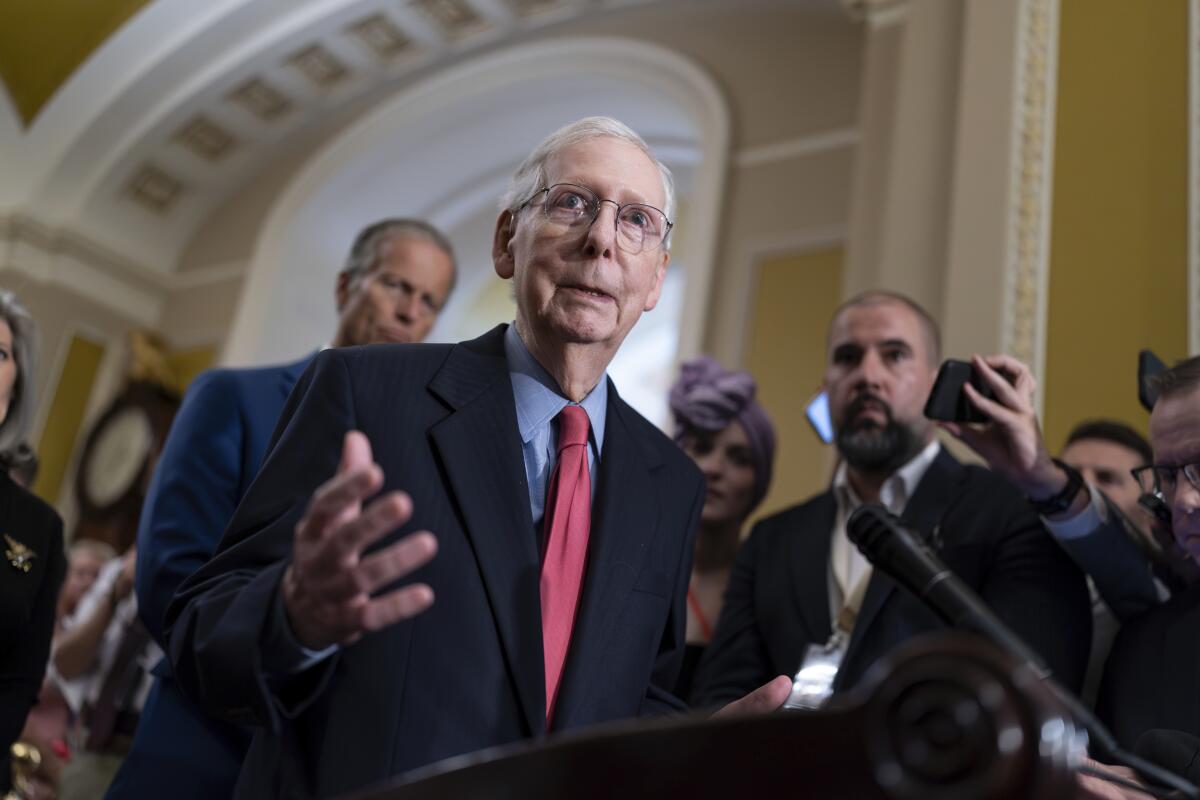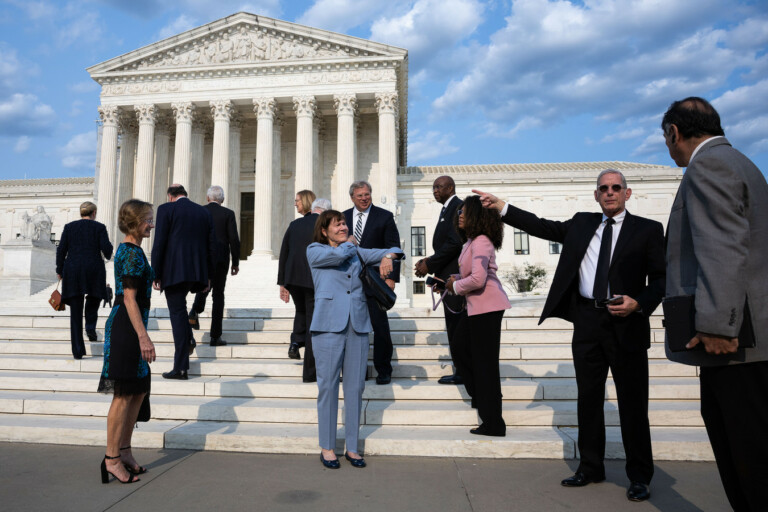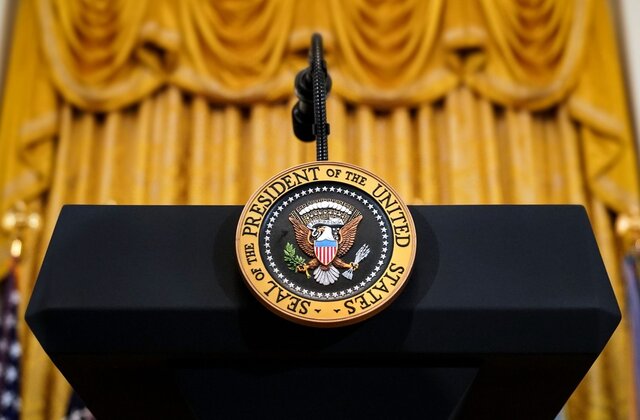The Senate returns Tuesday from a month-long recess as Congress gears up for a rocky September with a whole host of to-dos – including averting a government shutdown – before the fiscal year’s end.
The end-of-month deadline to fund the government has put lawmakers in a familiar tailspin, as little time remains to approve the 12 appropriations bills and keep the government fully functional. With just one of the bills passed through the House, none in the Senate and only a matter of weeks to approve and reconcile the legislation between the chambers, the Sept. 30 deadline is almost certainly out of reach.
lan: Democrats Now Need to Do Their Job
Accordingly, congressional leaders have made clear that a stop-gap measure to keep the government funded will be necessary. But opposition to a temporary solution from hard-right House members and an expressed willingness to let the government shut down has complicated the path forward.
Shortly after House Speaker Kevin McCarthy put his support behind a short-term measure, or continuing resolution, to keep the government funded, the House Freedom Caucus announced it would oppose a stop-gap measure unless certain conservative provisions are includes – like addressing DOJ “weaponization,” ending “woke” Pentagon policies and imposing restrictions on immigration.
The demands spell trouble for McCarthy, who has faced a number of challenges from the right since gaining the gavel earlier this year, all while trying to keep his slim majority in line. But even without the demands on the CR, reconciling the House and Senate’s spending bills more broadly is expected to be a heavy lift this month, and perhaps beyond.
Senate Majority Leader Chuck Schumer told colleagues in a letter last week that upon the Senate’s return, the upper chamber will focus on “funding the government and preventing House Republican extremists from forcing a government shutdown,” arguing that the only way forward is through bipartisan-backed appropriations bills, like the Senate has pursued, and urging the House to follow the upper chamber’s lead.
“We cannot afford the brinkmanship or hostage-taking we saw from House Republicans earlier this year when they pushed our country to the brink of default to appease the most extreme members of their party,” the New York Democrat wrote.
Senate Minority Leader Mitch McConnell called the looming funding fight a “pretty big mess,” at an event in Kentucky last week, saying that the House-backed spending levels, which fall well below those agreed to in the debt ceiling deal, are “not going to be replicated in the Senate.”
Meanwhile, questions about McConnell’s fitness for the leadership role have reemerged in recent days, after the Kentucky Republican appeared to freeze up while speaking at the event last week, triggering concerns about the 81-year-old’s health for the second time in just over a month.
Even so, some Senate Republicans were quick to come to McConnell’s defense.
Sen. Susan Collins of Maine said in a social media post on Thursday that McConnell “is fully prepared to continue leading our caucus” upon the Senate’s return, noting that she had spoken with him earlier in the day. And Sen. Mike Rounds of South Dakota told CNN on Sunday that there’s “no question” about his comfortability with McConnell remaining in the leadership role, adding that “he’s the right guy in the right spot, and at this stage of the game, I think he’ll continue on.”
The Capitol’s physician cleared McConnell last week to continue on with his schedule after an evaluation. And on Tuesday, the physician said in a letter to McConnell that he found no evidence of a seizure disorder, stroke or Parkinson’s disease after several evaluations. But questions about the leader’s health are expected to run in the background this week as the Senate gets to work on a number of priorities.
Adding to the lively month ahead, though the lower chamber does not return to Washington until next week, House Republicans appear to be gearing up to launch an impeachment inquiry into President Joe Biden, just as the spending fight gets underway.
At present, the inquiry remains up in the air. But should it move forward, McCarthy has pledged to hold a vote on the matter rather than take unilateral action. A vote to do so would require the bulk of his conference, with only a slim majority. But whether vulnerable Republicans in swing districts that Biden won in the last election would vote to open the impeachment inquiry into the president remains to be seen.
McCarthy has called the inquiry a “natural step forward” in the investigations into the president, while some have suggested that the move could appease the hard-right amid the spending standoff. Rep. Marjorie Taylor Greene, a Georgia Republican who was recently ousted from the House Freedom Caucus, said she wouldn’t throw her support behind measures to keep the government funded until the House votes to begin an impeachment inquiry into Biden.
Also expected to come to a head in the coming weeks are fights over reauthorizing funding for the Federal Aviation Administration and the farm bill, both of which likewise face Sept. 30 deadlines. Lawmakers are also expected to consider Ukraine aid and disaster relief as the government funding process moves forward.







